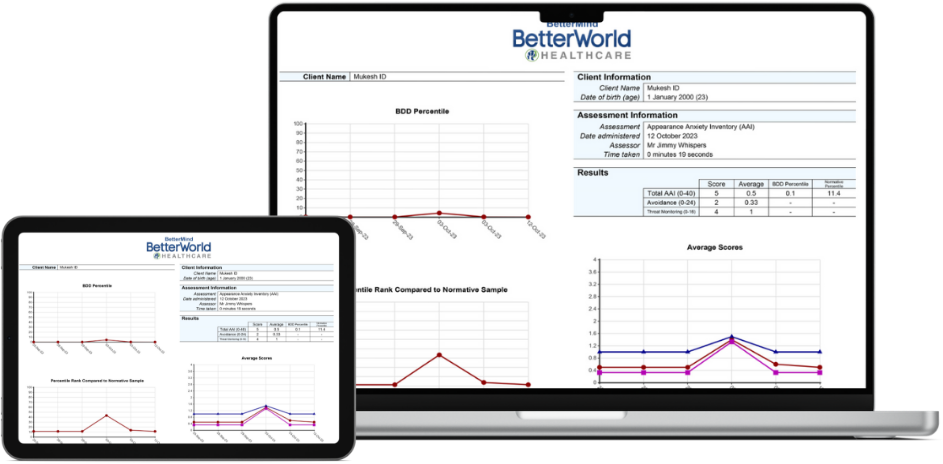Metacognition Questionnaire-30 (MCQ-30)
Assessments
Description
The MCQ-30 is a short version of the original MCQ and assesses individual differences in five factors important in the metacognitive model of psychological disorders. In particular, unhelpful metacognitions may contribute to obsessive and compulsive symptoms, pathological worry and underpin trait anxiety. The five subscales of the MCQ-30 are: cognitive confidence, positive beliefs about worry, cognitive self-consciousness, negative beliefs about uncontrollability of thoughts and danger, and beliefs about the need to control thoughts.
Validity
The MCQ-30 as a scale has good internal consistency, as do its five subscales (Wells & Cartweight-Hatton, 2004). In the adult community sample (n=182) the measure demonstrated convergent validity by showing positive correlations to obsessive and compulsive symptoms, pathological worry and trait anxiety. Four out of the five subscales also show good test-retest reliability, with the “negative beliefs about uncontrollability of thoughts and danger” subscale the exception.
Interpretation
Subscale scores range from 6 to 24, and total scores range from 30 to 120, with higher scores indicating higher levels of unhelpful metacognitions (for example, high scores on “cognitive confidence” indicates distrust of memory and other unhelpful beliefs about their cognition). Results are also presented as percentiles based on a normative community sample (Wells & Cartweight-Hatton, 2004).
Subscales are calculated by summing the following items:
- (Lack of) Cognitive Confidence: 8, 14, 17, 24, 26 and 29
- Positive Beliefs about Worry: 1, 7, 10, 19, 23 and 28
- Cognitive Self-Consciousness: 3, 5, 12, 16, 18 and 30
- Negative Beliefs about Uncontrollability and Danger: 2, 4, 9, 11, 15 and 21
- Need to Control Thoughts: 6, 13, 20, 22, 25 and 27
Developer
Wells, A., & Cartwright-Hatton, S. (2004). A short form of the metacognitions questionnaire: Properties of the MCQ-30. Behaviour Research and Therapy, 42(4), 385-396. doi:10.1016/S0005-7967(03)00147-5
Try it and see how BetterMind can enhance your practice

Support
Frequently Asked Questions
You’ve got questions, we’ve got answers. Below you can find answers to some of the most frequently asked questions. If you can’t find the answer you’re looking for, please feel free to reach out to us at info@betterworldhealthcare.com.
I can’t open test results within the Web Browser
Assessment result PDFs are opened in a new tab within the web browser. If you click the results but they do not open, your browser will be blocking the popup. To resolve this, after you have pressed the test result, look out for an alert at the top of your browser notifying you that a pop-up has been blocked, then click "Allow".
I have forgotten my password. How can I reset it?
If you have forgotten your password please press “forgot password” within the app, or on the Web Browser App login page (https://app.bettermind-app.com/login). You will receive a new temporary password via email.
Can a Practitioner access BetterMind from their Smartphone?
No, A Client /Patient can answer assessment questions on a smartphone but the Practitioners/ Users can't administer BetterMind using a Smartphone. A computer, laptop or tablet will have to be used.


